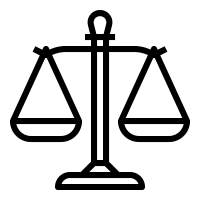What is Coroners?
Direct procedures such as autopsies, pathological and toxicological analyses, and inquests relating to the investigation of deaths occurring within a legal jurisdiction to determine cause of death or to fix responsibility for accidental, violent, or unexplained deaths.
Minimum education level
PT3
SPM
STPM
Diploma
Degree
Average Salary
Example of a Job Position
Task
Knowledge
Public Safety and Security
Knowledge of relevant tools, policies, procedures and strategies to support effective raid / patrol operations for local, provincial and national security, and protect people, data, property and institutions.
Administration and Management
Knowledge of business and management principles including strategic planning, resource allocation, human resource modeling, leadership techniques, production methods, and coordination between people and resources.
English
Knowledge of the structure and content of English, including the meaning and spelling of each word, composition rules, and grammar.
Law and Governance
Knowledge of laws, legal rules, court procedures, precedents, government regulations, executive orders, institutional rules, and democratic political processes.
Medical Science and Dentistry
Knowledge of the information and techniques needed to diagnose and treat human wounds, diseases, and deformities. These include symptoms, alternative treatments, drug properties and interactions, and preventive health measures
Skills
Talking
Talk to others to convey information effectively
Critical Thinking
Using logic and reasoning to identify the strengths and weaknesses of alternative solutions, conclusions, or approaches to the problems handled
Reading Understanding
Understand sentences and paragraphs written in work documents.
Coordination
Adjust the actions taken, with the actions of others.
Capability
-
1
Information Ordering - The ability to arrange things or actions in a certain order or pattern according to a specific rule or set of rules (e.g., patterns of numbers, letters, words, pictures, mathematical operations).
-
2
Medicine and Dentistry - Knowledge of the information and techniques needed to diagnose and treat human injuries, diseases, and deformities. This includes symptoms, treatment alternatives, drug properties and interactions, and preventive health-care measures.
-
3
Oral Comprehension - The ability to listen to and understand information and ideas presented through spoken words and sentences
-
4
Written Comprehension - The ability to read and understand information and ideas presented in writing






